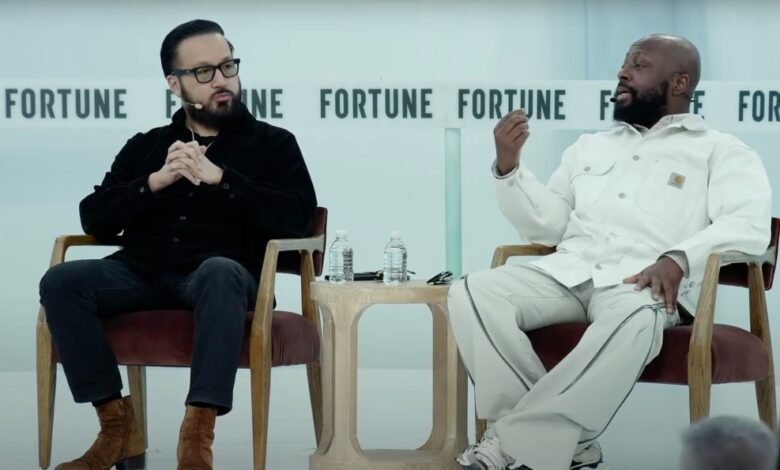OpenWav’s New App Is Fixing the Broken Music Industry

▼ Summary
– Wyclef Jean criticizes the music industry as broken, especially streaming services’ business models, which he views as unfair to artists.
– He is involved with OpenWav, a startup offering a direct-to-fan platform for artists to release music, sell merch, host events, and connect with fans.
– OpenWav’s CEO highlights that artists need only 1,000 true fans paying $10 monthly to earn a sustainable income, unlike streaming platforms.
– The platform plans to use AI tools to assist artists with tasks like tour planning, merch design, and content creation in the future.
– OpenWav aims to empower indie and emerging artists by letting them retain audience ownership and earn higher profits from ticket and merch sales.
Wyclef Jean, a celebrated Grammy-winning musician and producer, believes the music industry is fundamentally broken. His solution? Partnering with startup OpenWav, an innovative platform designed to return creative and financial control to artists. Through its recently launched app, OpenWav enables musicians to release new tracks, offer exclusives, engage directly with supporters, and manage merchandise sales and live events, all from a single interface.
During a recent appearance at the Fortune Brainstorm Tech conference, Jean, who serves as OpenWav’s Chief Creative Officer, didn’t hold back in his critique of the current music ecosystem. He singled out streaming services for what he described as an unsustainable revenue model. “If you’re a new artist, the amount of streams that you have to accumulate to get $10,000 is literally a rip-off,” he stated, pointing to widespread frustration among creators.
He referenced Cardi B’s recent street-side promotion of her album on TikTok as a telling example. While some viewed it as a humorous stunt, Jean interpreted it as a stark illustration of how difficult it has become for artists to earn a living through traditional channels.
Jaeson Ma, OpenWav’s co-founder and CEO, provided concrete numbers to underscore the problem. “Right now on Spotify, for $3,000 you have to hit 1 million streams,” he explained. Ma, a seasoned media entrepreneur and investor with stakes in companies like TikTok and Coinbase, emphasized that the existing system fails to adequately reward musical talent.
Ma argued that what artists truly need isn’t millions of passive listeners, but a smaller base of dedicated supporters. “If you have 1,000 true fans that give you $10 a month, that’s $120,000 a year as an independent music artist,” he noted. This direct-to-fan approach allows musicians to monetize their work through ticket sales, exclusive releases, and merchandise, all without relying on algorithmic platforms that often offer minimal returns.
While Spotify has also explored superfan monetization strategies, OpenWav distinguishes itself by focusing on independent and emerging artists rather than established stars. The platform offers an integrated experience where artists can sell event tickets while retaining 80% of the proceeds, communicate directly with attendees through in-app community chats, and even offer merchandise through global dropshipping, all with no upfront costs.
A key advantage for creators using OpenWav is full ownership of their audience data, including email addresses and phone numbers. This stands in contrast to social media platforms where fan relationships are often mediated by third-party algorithms.
Looking ahead, OpenWav plans to incorporate AI tools to assist artists in ways traditionally handled by managers, suggesting tour locations, merchandise ideas, or even helping design album art and lyric videos. Both Jean and Ma expressed strong optimism about AI’s potential to empower musicians, citing examples like producer Timbaland’s use of AI services to enhance his creative process.
“What we see with AI is that it’s going to be your best friend as an artist,” Ma remarked, noting that these features will roll out in the app’s second phase. For now, OpenWav is available on iOS and Android, offering a new pathway for artists seeking greater autonomy and sustainable income in an industry ripe for change.
(Source: TechCrunch)